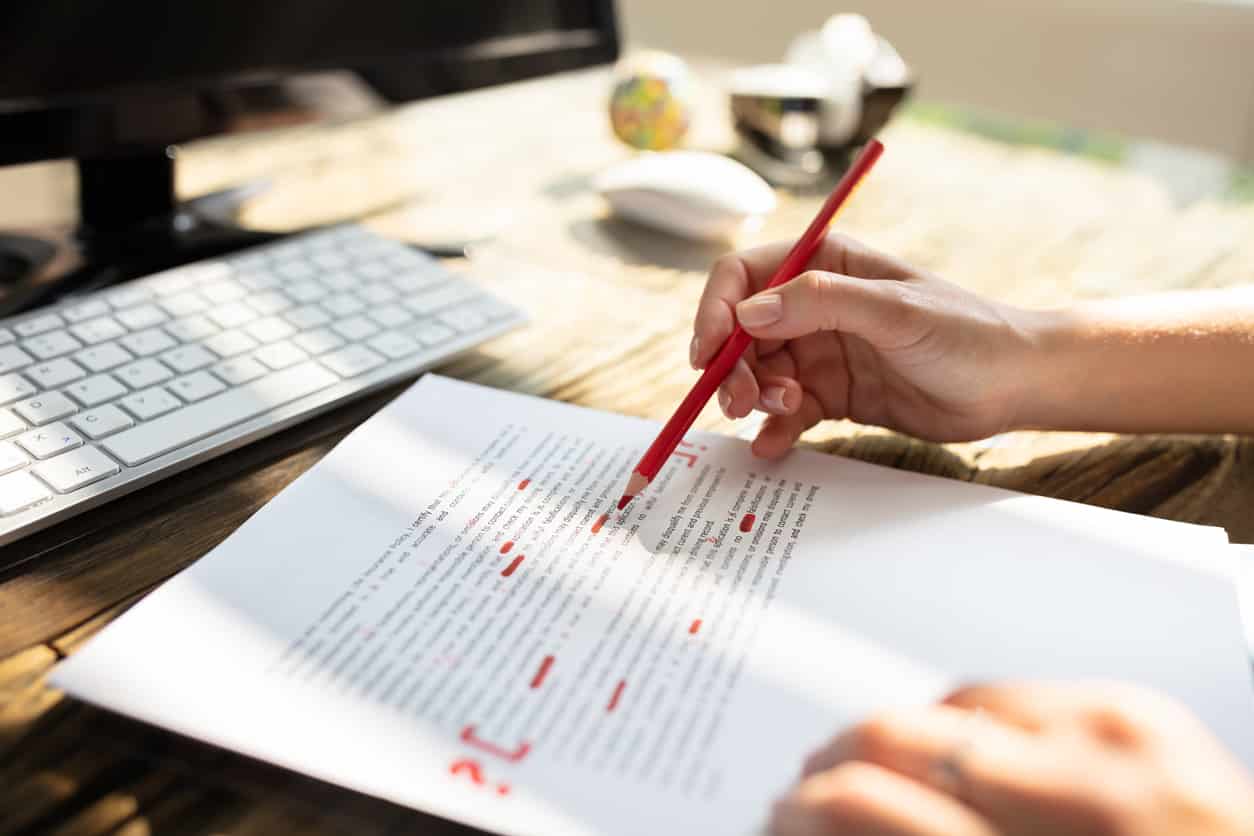
How to Write Faster: 11 Techniques for Writing Your Novel’s First Draft Fast
Wouldn’t it be great if you could learn how to write faster?
You’d have the first draft of your novel completed much more quickly, avoid all the usual delays and snags, and publish in record time — and finishing your first draft quickly does matter.
After all, most of us don’t have the luxury of being able to write full-time when we first start out. You’re probably doing a whole lot of other stuff at the same time, like caring for a family and holding down a day job.
If you can relate, then you know you don’t have time to waste when you finally do get a few moments to write.
When time is limited, there’s nothing worse than finishing, and feeling like you haven’t achieved much. If it happens often enough, you could find the weeks and months flying by without making any significant progress.
That’s discouraging — enough that it could even convince you to give up on your writing dreams.
But it doesn’t have to be this way. You can learn to write faster and more efficiently, without sacrificing quality. This post will show you how.
Making the most of the time you have is the main reason for finishing your first draft quickly.
But there are even more good reasons to consider.
Why You Should Try to Write Your First Draft Faster
All your drafts and novel revisions are important, but your first draft is arguably the most important, because you need to have something to work with. Without your first draft, there’s nothing to improve or polish.
There’s also no chance you’ll get to “published” without first finishing your first draft.
And there are loads of good reasons why you should try to finish your first draft quickly, aside from making the most of the time you do have.
Thrashing out your first draft quickly will help you:
Maintain your momentum.
With any big project, it’s much harder to get started than it is to keep the ball rolling. That includes starting over again once you’ve taken a break.
Writing in fits and starts drains a whole lot of energy. The more quickly you can finish your first draft, the less likely you are to be derailed by delays.
Keep up the excitement.
There’s a lot to be said for cranking out a first draft at breakneck speed, because the feverishness of your writing will result in a more exciting story.
Stay in the flow.
If you write quickly, you’re more likely to be able to hold all your story’s details in your head, rather than forgetting plot points because it’s been months since you wrote them.
Minimize unexpected delays.
Let’s face it, life can present you with plenty of surprises that can throw you off your writing game. The less time it takes you to finish your first draft, the better chance you’ll have to avoid getting derailed by the unexpected.
But you might be worried about still being able to do your best work.
But Won’t Writing Quickly Affect the Quality?
It may seem counterintuitive to say “no,” but hear me out. It’s true that many kinds of creative work are ruined if you rush them — after all, the Sistine Chapel wasn’t painted in a day.
And writing a good novel does take quite a lot of time.
However, that doesn’t mean you can’t increase your efficiency and eliminate a lot of wasted time. And final polishing and perfecting is what subsequent drafts are for.
The first draft is about getting into the flow of the story and being carried along by the action.
It’s actually not the time to worry about quality. If you do, you’ll find yourself spending much more time than you need to on it, and probably wasting a fair amount of time as well.
So for many reasons, the faster you can finish your first draft, the better.
Let’s look at how you can do that.
Tips vs. Techniques for Fast Writing
You’ll find loads of tips on how to write faster, and some of them are definitely helpful. But it’s not a good idea to rely solely on tips. Instead, look for techniques you can use day in and day out, and eventually master.
What’s the difference?
Tips are small tweaks you can make to your process that will help you be more productive or efficient. They’re valuable, but they usually take very little practice (if any) and don’t require much time or effort to learn or to implement.
Anyone can use tips regardless of their skill level or experience and you may or may not see some benefit from them. Most aren’t game-changing.
Techniques, on the other hand, are a bit more involved.
Techniques are “the manner and ability with which an artist, writer, dancer, athlete, or the like employs the technical skills of a particular art or field of endeavor…. a method of performance; way of accomplishing technical skill; the ability to apply procedures or methods so as to effect a desired result.”
So unlike using tips, learning and mastering writing techniques improve your skills as a writer. They take a bit more practice and investment of time and energy, but they also pay off with significant, longer-term improvements (making you a better, faster writer.)
What are some of those techniques? Glad you asked!
Proven Techniques to Help You Write Quickly
Let’s see what you can do to both improve your writing skills and write your first draft faster.
1. Do your planning.

Planning your novel means you don’t waste time staring at a blank page with writer’s block — the worst waste of time.
Planning means having an outline and getting to know your characters, and already knowing your setting well so you’re not world building as you’re writing — which inevitably slows you down.
If you have to stop writing to make decisions about how your world works, or to work out details about your story’s setting, etc., you’ll inevitably lose forward momentum.
You might even have to circle back to make corrections before you can move forward again. While some backtracking is unavoidable, you’ll want to minimize it as much as you can.
Thorough planning helps your writing flow much more quickly. It tells you where you’re going so you don’t waste time writing into blind alleys or round in circles.
Most importantly, it breaks your story down into manageable chunks — another excellent way to make sure you can keep moving forward.
2. Write every day.
Writing at least a little bit every day builds momentum and helps you to consistently move closer to your goal. Ideally, you’ll want to get into the habit of writing at the same time every day, whether that’s morning, evenings, on your lunch break, or whatever that means to you.
But obviously, we don’t all have an ideal schedule where that can work out. In that case, carve out some time on Sunday or Monday to look at your diary and see where you can schedule time to write each day.
If you can set aside an hour or more per day, great. If you only write for 20 min. or half an hour on another day, that’s fine too. Allow yourself that grace.
Like a weightlifter building muscle, the more you write, the stronger your writing muscle will get, and the faster and easier your story will come.
3. Get rid of distractions.
In many ways, writers have it easier than we’ve ever had, with so much information at our fingertips on every topic we can imagine.
On the other hand, we live in a world where corporations invest billions in working out how to grab and keep our attention — taking it away from our writing.
It’s easy to get distracted while you’re doing research on the internet. Constant pop-ups and pinging notifications on your devices are death to your writing.
So turn those off, either permanently (or at the very least) for the block of time you’re writing.
If you can disconnect from the internet entirely and turn your phone off or move it to another room, you’ll be doing yourself a huge favour in terms of productivity.
If you can’t go off grid completely, at least turn off notifications and sign out of social media. There are loads of apps that can help you do this. Check out Cold Turkey, Self Control, Freedom, or similar apps and reclaim your focus.
4. Don’t edit as you go.

Editing is an important step in your writing process — but it’s not your friend when you’re writing your first draft. As a matter of fact, editing at this stage will only slow you down.
So get used to not being perfect. Trust yourself that you can come back through on another round and fix typos, spelling, and grammatical errors and polish your prose.
The important thing is to simply get the words down on paper first. You can make them sing in later revisions.
After all, much of the time you spend editing now could end up being wasted in the end. Once you complete your first draft, you might discover you have to delete entire scenes or even chapters, so any time spent editing them into perfect form now will be pointless.
5. Leave the research till later.
Like editing, doing research while you’re writing your first draft can be a big time sink that pulls you out of flow and may end up being redundant.
Research removes you from the flow of the story and is very likely to send you down rabbit holes and tangents. While you’re writing your first draft, you want to avoid anything that could potentially cause you to lose hours on YouTube or following related links on websites.
How many times have you opened a browser window to find some small detail, and before you know it, you’re asking yourself, “What am I doing? How did I get here?” Despite your best intentions, you can easily lose 10 minutes, 30 minutes, or more at a time.
So make a note for yourself in your manuscript that you need to look up what sort of food they might have eaten in those days, or the name of a certain town in a particular province, and press on.
6. Don’t be afraid to skip bits.
If you’re in a great flow and getting loads of words out, but suddenly hit a section where you’re not sure what to do — just write a few notes about what roughly needs to be achieved and move onto the next scene.
For example, you might note that Alexis and James have a conversation (without knowing yet what that conversation entails), or that the forensic scientist on the case finds a clue, but you don’t know yet exactly what that clue is or specifically where it was found.
Your most important goal at this point is to keep the flow and momentum going.
If you stop to spend a lot of time scratching your head about little bits, you could pay the price of cooling down to a standstill.
And chances are, writing ahead a bit will help you understand what needs to go in that tricky section.
7. Use the in-between times.
Writing doesn’t only happen when you’re sitting in front of the screen or page.
You can also write when you’re driving, walking the dog, or any other time you’re doing something which doesn’t require direct concentration.
Just run through the scene you’re about to write in your head. Soon you’ll be popping with ideas that will flow once you have a chance to write them down.
A good way to set yourself up for success is to read your notes or outline for the next scene just before you reach the end of a writing session, so it’s already loaded up in your head (another good reason to have an outline.)
It helps if you’re writing your draft in software that you can take with you anywhere. Whenever you get ideas, you can be sure to capture them.
At the very least, use a note-taking app that will let you upload your progress soon as you get home.
8. Use the Pomodoro technique.

The Pomodoro technique is a powerful productivity technique that all writers should be familiar with. Pomodoro means tomato in Italian, and it refers to the classic kitchen timers that look like a tomato.
The idea is that you set the timer, and write as fast as you can, allowing no distractions, until the alarm sounds. When your time’s up, take a short break and repeat.
This technique is related to #3 above on distractions. During a typical working day, most people are only productive for around three hours!
However, you’ll get the most work done and make the most progress during these times of focus.
At first, it might be harder to work. You might not realize how distracted you actually are during your writing sessions. The standard Pomodoro is 25 minutes long, followed by a 5 minute break.
That’s a good place to start.
As time goes on, see what works best for you. You might stick with 25 minutes, or you might increase your focus time to 45 minutes at a time or more, with longer breaks in between writing sessions.
You’ll get much more accomplished in 25 minutes of focused time then you ever would in a much longer period of unfocused time.
Be patient with yourself if this feels tough at first. You will strengthen your ability to focus using this technique.
Note that this is not an approach to use all the time. Most people can only focus intensely for a few sessions per day, and that’s okay. That’s more than enough to make impressive progress on your novel’s first draft.
9. Learn to type faster.
Are you slow on the keyboard? Has it been years since you took a typing class?
Or maybe you’ve never taken one at all. If your actual typing or writing speed is slowing you down, then you can do some exercises to increase it until it’s able to keep up with the speed of your thoughts.
Fortunately, there are apps for that, and you can notice improvement fairly quickly.
With a little bit of practice, you’ll find that you’re getting many more words on the page, finishing your first draft much more quickly than with the two-fingered, hunt-and-peck method.
Check out web based apps to get started, for an example of these free apps: TypingClub or TypingAcademy.
10. Dictate your stories.
Voice-to-text is becoming popular with many authors to get their ideas down quickly. You’re no longer restricted by how fast your fingers can translate the ideas in your head into words on the screen.
The technology is everywhere, and you can find solutions that work for you for free or very low cost. Here are just a few examples:
- The note taking app on your phone
- Mobile novel software (like the Novel Factory) that allows you to write anywhere, on any device
- The voice-to-text features built into word processing software like Word and Google Docs
- Transcription apps like Otter.ai or Just Press Record
Learning to dictate takes a little practice and has a bit of a learning curve, but try it for a week.
You may have to adjust your writing process a bit, but even with having to correct a few more mistakes on your rough draft, you may be pleasantly surprised at the difference that it makes to your daily word count.
11. Join a writing group challenge.

There are quite a lot of online writing communities and some of them run monthly writing sprint support groups. Here’s how these groups typically work:
You sign up for a sprint. You publicly state your writing goals, and then you check in every day, reporting how many words you’ve written that day and whether you’ve met your target.
The organisers of the sprint will often keep track of the member’s progress against their goals and give out rewards to those who are achieving what they set out to.
Having this external accountability, as well as a group of people who are pulling for you, can do wonders for your writing productivity.
Learn How to Write Quickly (and Finish Your First Draft in Record Time)
Life is busy and full of distractions. And yet finishing the first draft of your novel is too important to leave to chance.
If you’ve been struggling, you might want to try some different approaches.
If you keep writing, you’ll eventually get faster, but why wait?
Writing tips are great, but mastering proven techniques that actually improve your writing skills is a smarter investment of your time and effort.
You can keep upping your writing speed, without sacrificing quality, by using the techniques above.
Don’t try to implement everything at once. Instead, pick your favorites now and add more as you get the hang of them.
Unlock your writing potential
If you liked this article by the Novel Factory, then why not try the Novel Factory app for writers?
It includes:
- Plot Templates
- Character Questionnaires
- Writing Guides
- Drag & Drop Plotting Tools
- World Building resources
- Much, much more

